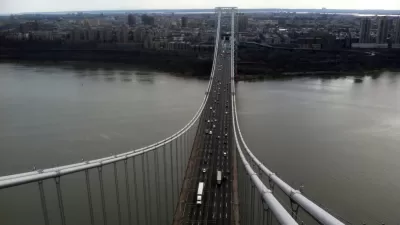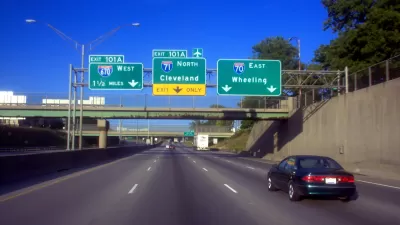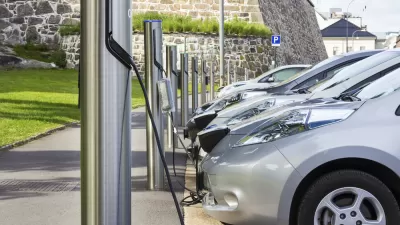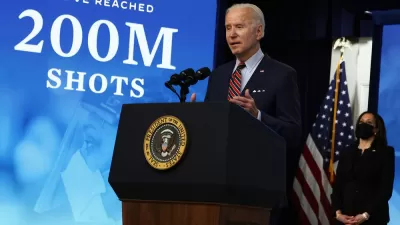To some, the agreement promises too much funding for traditional infrastructure programs rather than 'adaptations and innovations.'

[Updated July 20, 2021.]
Strong Towns' Charles Marohn argues that the proposals of the Bipartisan Infrastructure Framework will "make our infrastructure crisis worse." According to Marohn, "[s]hoveling unprecedented levels of funding into current programs prior to any serious work on reform is a terrible idea, regardless of who proposes it."
Assessing the funding outlined in the bipartisan compromise, Marohn writes:
While $5 million for active transportation sounds nice, you’ll find $4.2 billion for trunk highways in the bill. If the $5 million for Safe Routes for School gets you excited, perhaps you won’t mind the $1.7 billion for county state aid highways. That $57.5 million in bus rapid transit seems really progressive until it is compared to the $430 million being spent on municipal state aid routes (a program to essentially turn local streets into highways). Nearly half a billion dollars is going to the Department of Public Safety, with $226 million of that just for patrolling highways. We’re going to spend more in two weeks on highway patrols than we will spend in two years in the active transportation account.
Marohn proposes that "[o]ur top-down infrastructure programs need to shift to support maintenance, not expansion, and make room for the bottom-up adaptations and innovations needed to drive gains in productivity." Moreover: "[w]e should not be cheering on a bi-partisan consensus based on some simulacrum of reform while an overwhelming amount of spending is going to programs that are making us weaker as a country, as cities, and as neighborhoods."
FULL STORY: A Preview of Bi-Partisan Compromise on Infrastructure (Sorry, It's Not Good)

Planetizen Federal Action Tracker
A weekly monitor of how Trump’s orders and actions are impacting planners and planning in America.

Congressman Proposes Bill to Rename DC Metro “Trump Train”
The Make Autorail Great Again Act would withhold federal funding to the system until the Washington Metropolitan Area Transit Authority (WMATA), rebrands as the Washington Metropolitan Authority for Greater Access (WMAGA).

The Simple Legislative Tool Transforming Vacant Downtowns
In California, Michigan and Georgia, an easy win is bringing dollars — and delight — back to city centers.

The States Losing Rural Delivery Rooms at an Alarming Pace
In some states, as few as 9% of rural hospitals still deliver babies. As a result, rising pre-term births, no adequate pre-term care and "harrowing" close calls are a growing reality.

The Small South Asian Republic Going all in on EVs
Thanks to one simple policy change less than five years ago, 65% of new cars in this Himalayan country are now electric.

DC Backpedals on Bike Lane Protection, Swaps Barriers for Paint
Citing aesthetic concerns, the city is removing the concrete barriers and flexposts that once separated Arizona Avenue cyclists from motor vehicles.
Urban Design for Planners 1: Software Tools
This six-course series explores essential urban design concepts using open source software and equips planners with the tools they need to participate fully in the urban design process.
Planning for Universal Design
Learn the tools for implementing Universal Design in planning regulations.
Smith Gee Studio
City of Charlotte
City of Camden Redevelopment Agency
City of Astoria
Transportation Research & Education Center (TREC) at Portland State University
US High Speed Rail Association
City of Camden Redevelopment Agency
Municipality of Princeton (NJ)





























